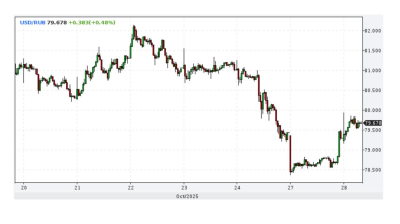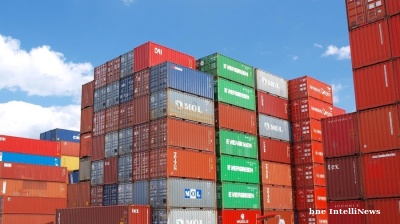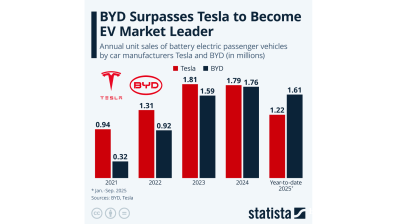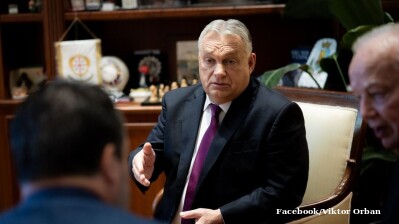Hungary has retained its ranking as the European Union's most corrupt country for the third year in a row, according to the 2024 report released by Transparency International (TI).
While it previously shared the bottom spot among EU countries with Romania and Bulgaria, since 2022 it has held this dubious distinction alone.
Hungary has dropped six notches to 82nd among 180 countries on the global Corruption Perceptions Index (CPI) released on February 11.
Hungary received 41 points on a 100-point scale where 0 marks the highest level, and 100, the lowest level of perceived corruption.
Overall, the 2024 CPI results show that in 16 of the 27 EU countries, the resilience against corruption has declined compared to 2023.
Hungary became the first EU country last year to irrevocably lose €1.04bn in cohesion policy funds due to systemic corruption and rule of law deficiencies. This reduced its 2021-2027 EU funding to €20.7bn, according to the report.
Additionally, Hungary risks losing €10.4bn from the RRF unless it fully complies with 27 reform measures and completes RRF-funded projects by 2026, it added.
TI Hungary in the country report said the government's anti-corruption reforms launched in 2022, including the set-up of anti-graft work group and the Integrity Authority, to meet EU demands failed to dismantle systemic corruption.
Key issues remain, such as opaque asset declarations for politicians, public funds being funnelled into "public interest asset management foundations" and ineffective judicial and criminal procedure reforms.
In January, police raided the offices of the Integrity Authority and its president Laszlo Biro faces allegations of mismanagement and abuse of office.
Biro admitted to "lending his official car to his wife to go shopping", but rejected the allegations. The former auditor, coming from a Big Five accounting firm, selected in an open procedure and appointed by the President of Hungary, told the press that he was being targeted for political reasons from the "top", after the state body began an investigation of the business interests of Antal Rogan, Viktor Orban's most powerful minister in charge of communication and overseeing the security services. Before the November election, the cabinet chief of the prime minister was put on the sanctions list under the Global Magnitsky act. Rogan is accused of orchestrating public procurement schemes that enriched himself and other party loyalists.
Despite Hungary's commitments to increase transparency in public procurement, corruption remains entrenched. In 2024, public procurement spending accounted for 4.6% of GDP, but reforms failed to reduce single-bid tenders for government contracts. While the EU-funded procurement process showed improvement, nationally funded projects still fall short of targets, TI said.
The government has also favoured a select group of companies through concession contracts and framework agreements, ensuring lucrative contracts remain within a small circle of businesses. TI Hungary noted that Sovereignty Protection Act approved in 2023 raised serious rule of law concerns, granting a newly established Sovereignty Protection Office (SPO) broad powers to investigate individuals and organisations without clear oversight.
TI Hungary was among the first targets of the SPO and has taken its legal challenge to the European Court of Human Rights after Hungary’s Constitutional Court rejected its complaint.
The European Commission launched a lawsuit against Hungary over the legislation, which in its view breaches a string of fundamental core values, but also the rules on internal market, e-commerce, services and data protection.
The law bans foreign funding of political parties and imposes prison sentences of up to three years for violations. Czechia was the first EU country to join the European Commission's law case against Hungary.
The Government Information Centre (KTK) said in response to the TI report that US President Donald Trump and billionaire Elon Musk "have busted Transparency International". "By now it is clear that Soros and the Democrats were financing a network to fabricate lies about their opponents. TI is a member of that network... They are lying about Hungary, among others, on demand," KTK said in a statement.
The Sovereignty Protection Office dismissed the findings of the report as part of a global disinformation campaign. It claimed that the NGO operates as part of a foreign lobbying network, with over 80% of its funding coming from external sources like the EU Commission, USAID and George Soros' Open Society Foundations.
The CPI index is merely a political tool designed to undermine Hungary's government and limit its economic and political independence, head of the office Tamas Lanczi responded in a statement.
Data

Ruble strengthens as sanctioned oil companies repatriate cash
The Russian ruble strengthened after the Trump administration imposed oil sanctions on Russia’s leading oil companies, extending a rally that began after the Biden administration imposed oil sanctions on Russia in January.

Russia's central bank cuts rates by 50bp to 16.5%
The Central Bank of Russia (CBR) cut rates by 50bp on October 24 to 16.5% in an effort to boost flagging growth despite fears of a revival of inflationary pressure due to an upcoming two percentage point hike in the planned VAT rates.

Ukraine's trade deficit doubles to $42bn putting new pressure on an already strained economy
Ukraine’s trade deficit has doubled to $42bn as exports fall and imports balloon. The balance of payments deficit is starting to turn into a serious problem that could undermine the country’s macroeconomic stability.

BYD surpasses Tesla to become EV market leader – Statista
While Chinese manufacturer BYD already pulled ahead of Tesla in production volume last year, with 1,777,965 battery electric vehicles (BEV) produced in 2024 (4,500 more than Tesla), the American manufacturer remained ahead in sales.




